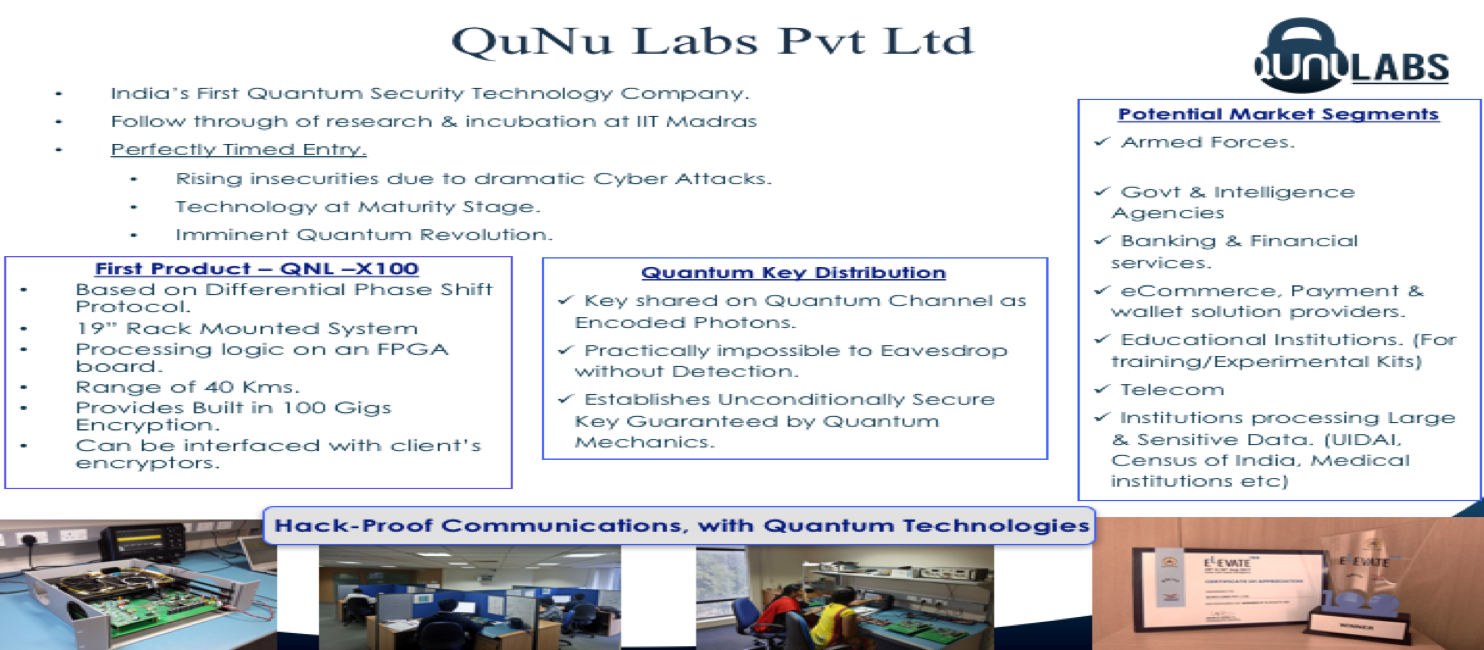Qunu Labs
| Showcase | Criterion |
|---|---|
| Showcase articles feature products, start-ups or service providers that IoTForum Editors consider impactful, innovative or successful. They will focus more on technology, business model and learnings for the wider ecosystem. We are starting with IoTnext 2017 Award winners and special mentions. If you consider that your offering should be covered send a draft to IoTForum using contact us option | Qunu Labs was a special mention at IoTNext 2017 |
In an of era of increasing connectivity, hacks and security breaches have become more of a rule than an exception. This makes the need for data encryption more important than ever, so that even if the data is hacked by an intruder, it is not usable to him/her. The classic method of symmetric/asymmetric encryptions are based on generation of keys using algorithms like Tripple DES, RSA, AES etc. which are then swapped between sender and receiver to enable the decryption of encrypted data. Though generally secure, the strength of these keys depends on mathematical complexity and hence these keys can be broken if the intruder has sufficiently high computation powers giving the intruder access to all the data.
Qunu Labs, established in September 2016, is the trying to solve this problem by using Quantum Cryptography. The company was born out of research and incubation at IIT Madras, and continues to collaborate with IITM for all R&D. The term QuNu stands for “Quantum Light,” depicting its primary focus on developing products exploiting the phenomena of light and quantum mechanics
Quantum Crytogrpahy is the science of exploiting quantum mechanical properties to perform cryptographic tasks. The most developed method of Quantum Crytogrpahy is Quantum Key Distribution (QKD), in which security of encryption relies on foundations of quantum mechanics making it virtually impossible for an intruder to steal an encryption key without making the sender and receiver aware of the same. This follows from the fact that any intruder trying to eavesdrop on the key should measure the system thus disturbing and making sender and receiver aware of the same. For Example In Quantum Key Distribution (QKD) two legitimate parties say A (sender) and B (receiver) can share a secure private key under the nose of eavesdropper. The information can be encoded in the properties of light by its polarization or interferometric methods, and transmitted as quantum information bits or qubits via a quantum channel (optical fibre or wireless). If these qubits are eavesdropped then its state will change. An prior shared authenticated classical channel performs the post processing and key distillation to finally generate the secret key.
QuNu first product, the QNL-X100, is at the alpha prototype stage and scheduled to be rolled out in December 2017. This is a basic Quantum Key Distribution (QKD) offering, based on the differential phase-shift protocol and with built in AES-based encryption for 100 Gbps data. It has a range of up to 40 km.
Going ahead, QuNu is already working on a quantum random number generator and advanced QKD systems using more robust protocols, which will function for a distance of up to 200 km. Subsequently, the company has plans to develop proprietary quantum-safe algorithms and progress towards free-space and satellite-based QKD systems.
References:
